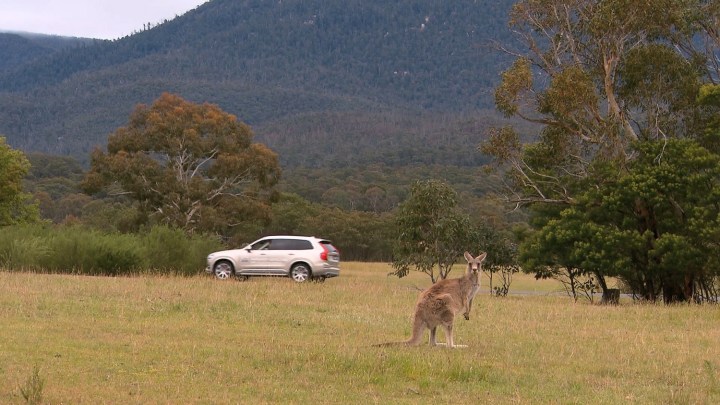
The Swedish automaker explains that accidents with kangaroos represent a huge — and sometimes deadly — problem in Australia. The National Roads & Motorists’ Association (NRMA) reports that the roughly 20,000 car-on-kangaroo collisions that happen every year on Australian roads cost insurance companies over $53 million.
On paper, Volvo’s kangaroo detection tech is relatively simple. After all, the Swedish company has spent decades developing ways for motorists to avoid accidents with moose and reindeer, and engineers are essentially building an evolution of the City Safety software that’s currently available on nearly every member of the Volvo lineup.
In application, getting a car to safely avoid a kangaroo is a lot more complicated that it might sound. Martin Magnusson, one of Volvo’s senior safety engineers, explains that kangaroos are harder to detect because they’re much smaller than the mammals that typically meander across Swedish roads and their movements are faster and less consistent.
To begin, engineers are gathering data on kangaroos by observing them in their natural habitat. Once the observation phase is done, they’ll design a software that uses Volvo’s existing radar and camera technology to scope out the road ahead and warn the driver if it detects that a kangaroo is about to cross the road. The technology will automatically apply the brakes if it senses that a collision is imminent and the driver doesn’t respond.
Volvo hasn’t revealed when its kangaroo detection technology will be ready to hit the market, though it’s expected to land before the end of the decade. However, it goes without saying that the feature will not be offered in Europe, in the United States, or anywhere on the planet where kangaroos are only found in zoos or at specialty meat stores.
Editors' Recommendations
- Google is bringing Chrome browser to cars, even more EV features to Maps
- You’ll soon be able to watch YouTube videos in your Android Automotive car
- No mere EV, the sensor-stuffed EX90 is Volvo’s towering tech flagship
- The iPhone could soon pick up a car crash detection feature that can dial 911
- Watch San Franciscans take a ride in Waymo’s self-driving car




